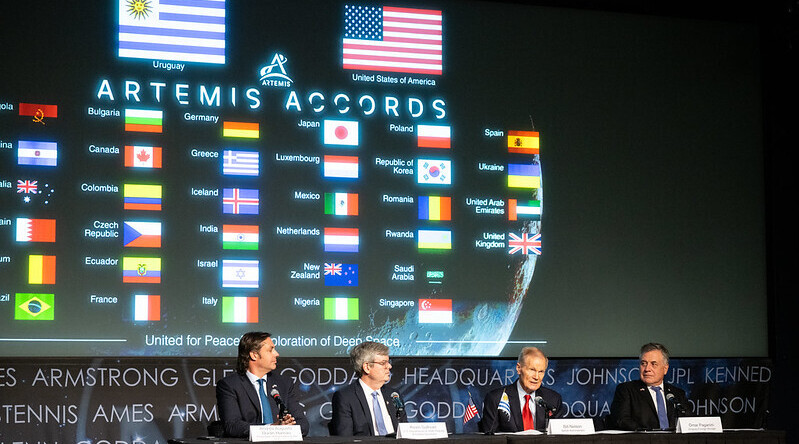In its dealings with Russia, the mantra of the Obama administration is to "hit the reset button."
The metaphor survived a minor and jocular diplomatic gaffe during the meeting between Secretary of State Hillary Clinton and Russian Foreign Minister Sergey Lavrov, when Mrs. Clinton presented her Russian counterpart with a physical embodiment, an actual button labeled "reset" in English and Russian.
The problem was in translation; reportedly, instead of saying "reset", the inscription was apparently rendered into Russian as "overcharge"—which might, ironically, reflect Russia's sense of the tab it has paid since the Cold War's end. Still the thought was, and is, there.
More seriously, however, we might wish to parse the "reset button" image. Presumably, it means that, in dealing with Russia as with others, the diplomacy vacuum of the past eight years are to be cast aside, as we return to the golden age of the 42nd President, an era now reincarnated.
Certainly, the early signs from Mr. Obama and his foreign policy team are most encouraging in this regard. Respect, engagement, consultation are once again the order of the day in dealing not only with allies but, to a degree, with Iran and Syria too—this in contrast to an early declaration from the State Department during the first Bush administration:"First we decide, then we tell the rest of the world".
The new diplomacy deal seems to embrace Russia; as Gideon Rachman recently observed in the Financial Times, the very choice of locale for the Clinton-Lavrov meeting was significant for Russia's standing in that Geneva was a frequent site of superpower talks during the Cold War.
Beyond symbolism, preliminary indications, such as President Obama's openness to revisiting the issue of U.S. missile defense deployments in central Europe, are designed to ease Russian neuralgia, and they will do so.
But, if we look behind the obvious, the "reset button" may have fraught implications. For, if the button resets to the period of 1992-2000—the Clinton years, and the dawn of a new, post-Cold War order—we perforce recall a mixed bag of progress and missed opportunities in U.S.-Russia relations.
The overwhelmingly positive accomplishment of the era came in arms control, with deep cuts in nuclear arsenals, the Cooperative Threat Reduction Act in the U.S. Congress, and the removal of nuclear weapons from three of the nuclear post-Soviet states (Ukraine, Kazakhstan and Belarus) to Russia, thus creating a bilateral negotiation stage. Set against these positive developments, however, was the expansion of NATO eastward to Russia's borders (Russia to this day sees this as a betrayal of an agreement to German reunification in exchange for non-expansion of the Western alliance), and the U.S.-led bombing of Russia's ally, Serbia. It is not a question of whether these policies were sound or misguided; the point is that Russia felt lied to, or at best marginalized.
Hence, we might look and hope for a policy of "reset button plus," one that engages Russia on a host of issues that would directly serve America's self interest. These would include: arms control, with a reversal of the Bush administration withdrawal from the Anti-Ballistic Missile Treaty, and early and real progress on the Strategic Arms Reduction Treaty, which is due to expire in December of this year; future energy supply and security, where Russia is principal natural gas supplier to our European allies, yet faces challenges of political geography in laying supply pipelines; and an extended region of concern from Pakistan and Afghanistan, through Central Asia and to Iran, in each of which the United States and Russia share a long-term strategic interest-and a recent, shared vexatious history.
In tactical terms, there are steps that could be taken in short order, as a harbinger of general mutual good will. Given, for example, President Obama's demonstrated and welcome re-embrace of scientific exploration as a mark of progress rather than opprobrium, the "reset button" might reinvent a high-level bilateral consultative entity along the lines of the Clinton administration's Gore-Chernomyrdin Commission, which sought to develop bilateral cooperation on scientific, technical and business fronts.
Above all, the tone of the "reset" approach to Russia will be important, and not just a "back to the future" proposition. Remember that, while President Bush was ridiculed for "looking into [Putin's] eyes and seeing his soul", the policy of the 90s was largely based on a one-dimensional investment in a Russian President (Yeltsin) who, in the mantle of democratic reformer, presided over a catastrophic kleptocracy and flight of capital from Russia. In this context, the U.S. policy toward Russia was viewed as myopic and condescending. By contrast, when asked recently by Michael Dell, the computer entrepreneur, how outsiders might help Russia, Prime Minister Putin responded: "We don't need any help. We are not cripples". It's an important image to bear in mind, in refuting those who would discount Russia as a victim of plummeting oil prices, an economic cripple (as if Russia were the only global power in the current doldrums).
The United States must also avoid what has been termed "selective engagement"—that is to say, the practice of unilateral choice of what discussion items are on the table. The Russia of today is in no mood to be lectured or dictated to in this way and, as already noted, the menu of items that ought to be in play are so not out of any sense of charity or obligation but rather from an enlightened self-interest on our part.
To conclude in a more positive vein: even in the darker days, and in the wake of the U.S. recognition of Kosovo independence, soon-to-be President Medvedev said: "It is necessary that the United States and Russian Federation cooperate….it is inevitable." "Inevitable" may be prematurely optimistic, but "necessary" is surely on point. The opportunities for positive engagement are there, the early signs from both sides are promising, and each seems to acknowledge that the stakes are high.




